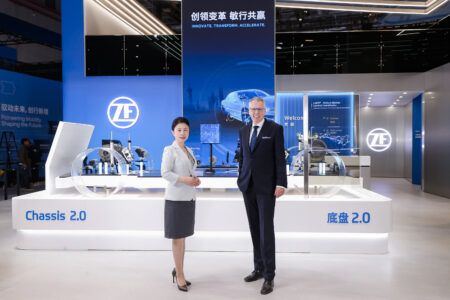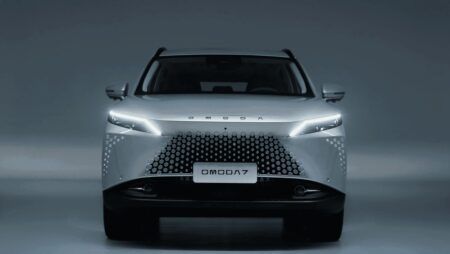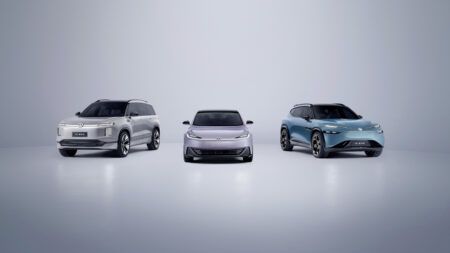Nottingham City Council are piloting a UK-first scheme to power its EV fleet with solar batteries. The two giant batteries – which will store energy generated by solar panels – have been craned into the City Council’s Eastcroft Depot this week as part of a pioneering project. Made from recycled car batteries, they can store 1,200kWh of electricity – enough to power a television for almost a year. Alongside the batteries, 40 bi-directional V2G chargers, 40 compatible electric vehicles, six electric bin lorries, and solar panels have been installed at the depot.
This pilot aims to maximise the use of renewable energy that is generated locally by using the giant batteries and the V2G vehicles for short-term storage of the electricity generated by the solar panels. Monitored by a purpose-built Energy Management System, the bi-directional charging units can send power back to the buildings on the depot or to the grid during peak times. This balances the demand of electricity and reduces energy costs.
Eastcroft Depot serves as a commercial hub for Nottingham City Council’s waste, energy, highways, and infrastructure operations, including where 66% of the city’s household waste is turned into energy for 5,000 homes. Much of the City Council’s fleet is based at the depot, and significant efforts have been made to decarbonise the fleet of bin lorries, sweepers, vans and more. Now over 50% of the council’s fleet is powered by electricity. Nottingham Electric Vehicle Services (NEVS) is also based at Eastcroft Depot which maintains the council’s own electric vehicle fleet as well as offering MOT and servicing to the growing number of EVs appearing on Nottingham’s roads.
“It’s fantastic to see the batteries installed at Eastcroft Depot for the CleanMobilEnergy project,” said Councillor Sally Longford. “Our aim with this project is to make the most of renewable energy that we’re generating in Nottingham, reducing carbon emissions and costs associated with our fleet. We are leading the way when it comes to the green agenda, and innovative projects like these are key to helping us to achieve our target of being the first carbon neutral city in the UK by 2028.”
Installation of the batteries is one of the last steps in the CleanMobilEnergy ‘vehicle to grid’ (V2G) pilot project, which is funded by Interreg North-West Europe (an EU funded programme) and Innovate UK (part of the UK Government’s Research and Innovation agency).





